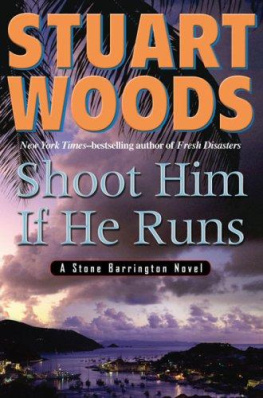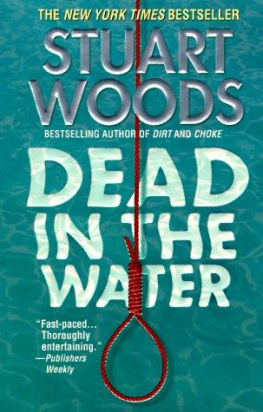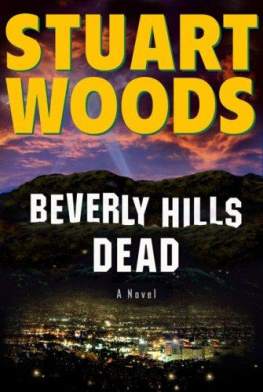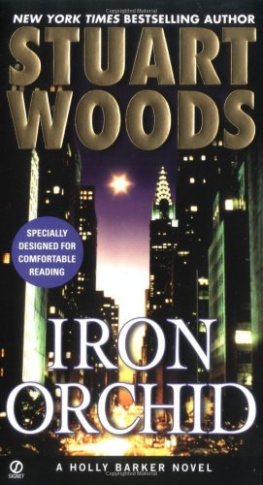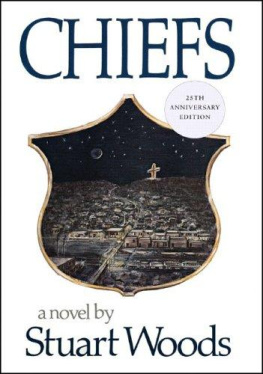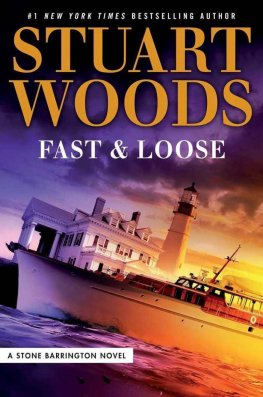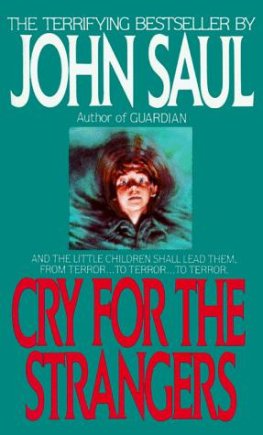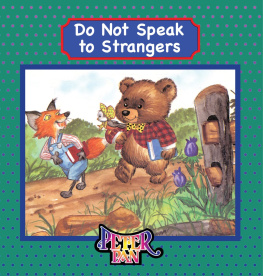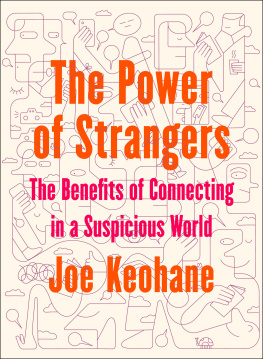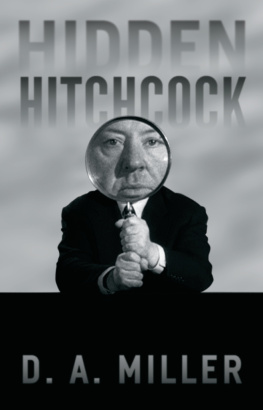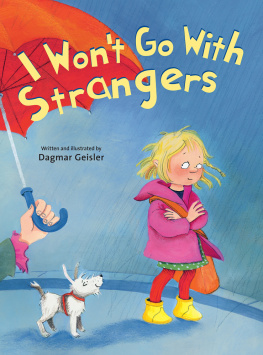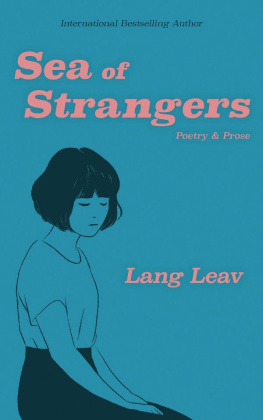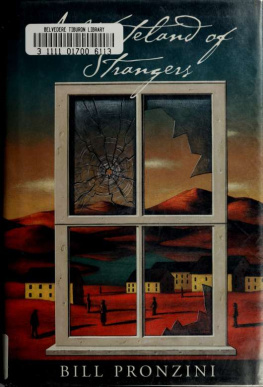
Stuart Woods
Imperfect Strangers
As the sun rose over Berkeley Square, the May sunshine drifted through the blinds in the Mount Street flat, two blocks west. The rays fell across the face of Sandy Kinsolving, waking him as if they had been the bell of an alarm clock. He lay on his back, naked, and blinked a couple of times. Oriented, he turned to his right and moved toward the woman next to him. He shaped himself to her back and pressed his groin against her soft buttocks, and he felt the stirring come.
She gave a soft moan and responded, pushing against him. In a moment she was wet, and he entered her, moving slowly, enjoying the early morning moment.
The phone rang, the loud, insistent jangling that only an older British phone could make. He cursed under his breath and, without stopping the motion, reached across her and lifted the receiver.
"Hello?" he said hoarsely.
"It's Joan." She waited for him to respond.
He still did not stop moving. "Yes," he said, finally, then he became more alert. "What time is it in New York?"
"Nearly two a.m."
"What's wrong?"
"Daddy has had a stroke."
He stopped moving, wilting like a violet in hot sun. "How bad?"
"They don't know, yet, but at his age-"
Jock Bailley was ninety-one. "I'll get myself on a flight as soon as the office opens. Where is he?"
"Lenox Hill. I'm calling from there."
"I'll let the New York office know what flight I'm on."
"Albert will meet you."
"You all right?"
"Tired."
"You'd better go home and sleep. There's nothing you can do there."
"I suppose you're right. Laddie and Betty are here, anyway."
"You should all go home and sleep."
"I will; I can't speak for Laddie." you this afternoon."
She hung up without saying good-bye.
Sandy replaced the receiver. A little ball of apprehension had made a tight knot in his belly.
"Sandy," the woman said accusingly. "You stopped."
Sandy rolled onto his back. "Sorry, luv. I've just been put out of commission."
"Bad news?"
"Yes, bad news. Illness in the family."
"I'm sorry."
"Thanks. I'd better get dressed. Do you mind breakfasting at home? I have to go to New York."
"Certainly, dear," she said, rising and heading for the bathroom. "I'll just get a quick shower."
"Thanks." Sandy stared at his ceiling and tried to put a good face on all this. Jock wasn't dead, yet; that was something, at least.
Sandy took the lift down at eight o'clock and let himself into Cornwall amp; Company, the wine shop on the ground floor. He stood for a moment and watched the sunbeams cut little swaths through the dust in the air, which was in the process of gathering on the hundreds of bottles that lined the walls of the large shop.
He walked to the rear of the shop and climbed the old circular staircase to the offices above. He set his briefcase on the desk in his little office and sat down heavily. As he did, the door from the first-floor landing opened and Maeve O'Brien stepped into the offices.
"Maeve," he called out.
She came to his office door. "Yes, Mr. Kinsolving?"
"Would you get me a seat on a flight to New York? The earlier the better."
"Of course. I thought you were staying until next week, though."
"Old Mr. Bailley has had a stroke."
"Oh, I'm sorry to hear it. I'll call the airlines." She hung up her coat and went to her desk.
A few minutes later, Maeve was back. "You're on the eleven o'clock; it was the earliest. I'll pick up your ticket from American Express."
Sandy suddenly couldn't tolerate the office anymore. "I'll pick it up myself; I could use a walk."
"As you wish."
He let himself out the front door of the shop, locking it behind him, and walked slowly past the Connaught Hotel and toward Berkeley Square. Even if Jock was still alive, at his age he couldn't come out of this whole. What would happen if he couldn't communicate, couldn't make his wishes known? Oh, Jesus.
Sandy circumnavigated Berkeley Square and started back up the south side of Mount Street, past the poulterer's and the antique shops, past the tobacconist and the chemist, past his tailor's. He remembered he had a fitting that morning. He stopped at the little American Express office as the manager was letting herself in.
"Good morning, Mr. Kinsolving," she said pleasantly.
"I'd like to pick up a ticket for New York," he said. "The reservation's already made."
"Certainly; I won't be a moment."
He stood outside the agency and watched the morning light fill the elegant street, with its pink granite buildings, lately sandblasted of the decades of London grime, looking new in the moist air. He loved this street. He could get almost anything done within the block-have a suit made; lunch at the Connaught or Scott's; pick up a packet of condoms from the Indian chemist, then forget to use them; be measured for a brace of shotguns at Purdy's on the corner; or select a case of good port at Cornwall amp; Company, his London base. It jarred him that he was leaving this to go back to New York before the appointed time. He didn't know what awaited him there, and he didn't want to guess.
After a passable airline lunch, he ordered a single malt whisky, uncharacteristic for him at this hour. He wasn't sleepy, but he wanted to be. An announcement came that the movie was about to start. The airplane was equipped with the new individual movie screens; he flipped up his screen and adjusted the headset.
As he did, someone came forward and took the empty seat next to him. "My seatmate snores," a man's voice said. "Hope you don't mind."
"Not at all," Sandy replied, smiling politely, not bothering to glance at the man.
The titles came up on the screen, and Sandy prepared to lose himself in whatever the movie might be. It turned out to be the Alfred Hitchcock classic Strangers on a Train.
Peter folded away the screen and put away the headset, then accepted his third Scotch from the flight attendant. He turned to the man beside him out of automatic courtesy. "Join me?"
"Don't mind if I do," the man replied. "What is that you're drinking?"
"Laphroaig."
"Oh, yes, the same for me, please."
Sandy looked at his companion for the first time and found him to be very much like himself. Hardly identical in appearance, but about the same age, mid-forties, the same good clothes, good haircut, good teeth. His hair was sandy, going gray, as Sandy's was dark, going gray. He noticed the three-button cuff at the end of the man's sleeve and knew that they went to the same shirtmaker. His accent was hard to place; something English in it, but not English; mid-Atlantic, maybe.
The man offered his hand. "I'm Peter Martindale," he said. "Peter will do."
"Sandy Kinsolving." They shook hands.
Sandy's drink arrived. "Your good health, Peter," he said, raising his glass.
"And yours, Sandy." Both men drank.
"God, that's good! You can taste the peat. Too many of them wouldn't do your liver any good, though."
"Certainly wouldn't," Sandy replied. "Not unless you were laboring very hard in the vineyard, sweating it out."
"And what vineyard do you labor in, Sandy?"
"Wine. I buy and sell it. You?"
"Art. I buy and sell it. In San Francisco."
"I'm in New York and London. I can't place your accent."
"California Brit, I guess," Peter said. "Born in Liverpool, been out on the coast for twenty years."
"How's the art business?"
"Good. And wine?"
"Good and getting better. I'm glad to see the recession behind us; I've got a lot of good claret in the cellars that I'd like to have sold two or three years ago."
Next page

